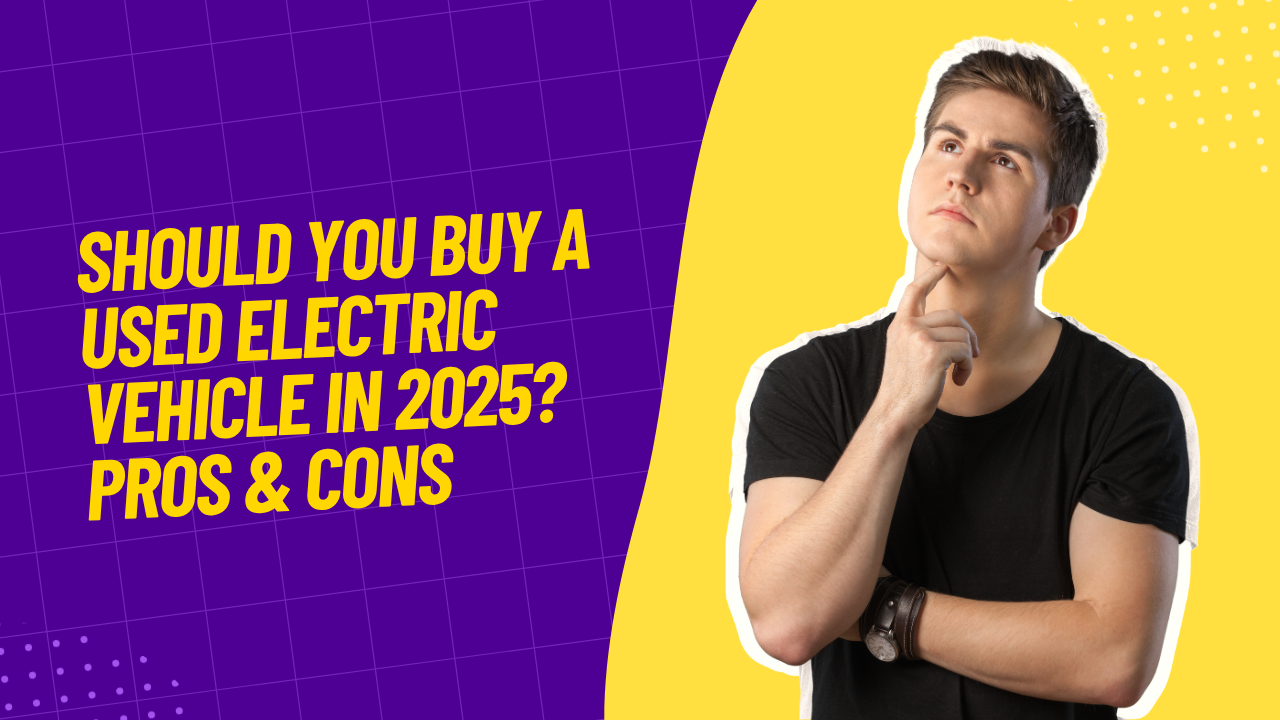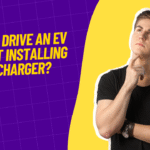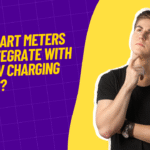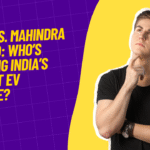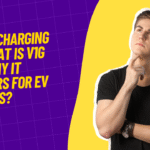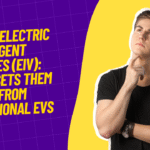As electric vehicles (EVs) go mainstream, many buyers begin considering second-hand options. In 2025, the used EV market is evolving rapidly—with more models on the road, battery technology improving, and government incentives supporting resale-friendliness. Yet purchasing a used EV still raises key questions: Is it cost-effective? How trustworthy is the battery life? What should you inspect before buying?
This in-depth guide explores the advantages, pitfalls, and best practices for buying a used EV in India (and similar markets) in 2025. You’ll find actionable advice on evaluating battery health, registering a used EV, cost-savings potential, and much more.
2. Pros of Buying a Used Electric Vehicle in 2025
2.1 Lower Purchase Price
EV depreciation happens quickly in the first three years. A car like the Hyundai Kona EV or MG ZS EV may drop 30–40% in value within that period, making well-maintained used models available at ₹6–8 lakh, compared to their ₹12–15 lakh new-price.
2.2 Government Incentives
Several state governments now incentivize used EVs—with concessions on registration fees and road tax. States like Delhi and Tamil Nadu allow exemptions up to ₹15,000, making used EV ownership more affordable.
2.3 Reduced Depreciation
Much of depreciation has already occurred. Once bought, the used EV retains value better, assuming battery health checks out. Owners experience slower depreciation trends post three years.
2.4 Environmental Benefits
Extending the life of an existing EV helps reduce manufacturing emissions. You enjoy green driving without the carbon cost of producing a new car.
2.5 Immediate Access to Advanced Technology
With 2020–2022 EVs featuring range over 300 km and fast charging capability, used buyers get older models with modern features—often without new-premium pricing.
3. Cons of Buying a Used Electric Vehicle in 2025
3.1 Battery Degradation Risk
Battery capacity starts to degrade from day one. Factors such as remaining range, charging habits, and temperature exposure impact battery life—replaceable but expensive (₹1–2 lakh cost on large EVs).
3.2 Warranty & Certification Gaps
Original battery warranties usually cover 8 years or 1,60,000 km. If expired, repair costs shift to you. Additionally, certified pre-owned (CPO) EV programs are still limited, making due diligence essential.
3.3 Limited Resale Market
Currently, resale infrastructure and consumer awareness are still growing. Regulated second-hand pricing is less robust than for ICE cars—buyer patience is needed.
3.4 Missing Updates & Accessories
Older EVs might lack newer features like Android Auto, vehicle-to-load, or smart app updates. Retrofitting is possible, but costs add up.
3.5 Hidden Costs
Used EVs can have hidden drains—such as battery swaps, motor repairs, or controller issues. A poor inspection may result in high unplanned expenses.
4. Cost Comparison: New vs Used EV
| Expense Category | New EV (₹12L) | Used EV (₹8L) |
|---|---|---|
| Depreciation (3 yrs) | ₹5L | ₹1L |
| Battery Replacement | Included in warranty | ₹1.2L (after expiry) |
| Maintenance (3 yrs) | ₹30,000 | ₹25,000 |
| Insurance & Tax Savings | Full premium | 10–15% lower |
| Total 3-Year Cost | ₹17L | ₹10.5L |
Ultimately, a used EV can cost ₹6–7 lakh less over 3–4 years compared to a new one—even with typical battery replacement.
5. What to Inspect Before Buying?
5.1 Battery Health Check
- Use append apps (e.g., TeslaFi, Hyundai EV data) to check State of Health (SoH).
- Ask for charging records to verify frequent fast-charging or thermal exposure.
- Minimum acceptable SoH: 80% for vehicles >3 years old.
5.2 Service Records & Warranty
- Confirm service via brand workshops.
- Verify remaining battery warranty.
- Check for recall updates.
5.3 Usage History
- Higher monthly mileage implies faster battery wear.
- Fewer owners often reflects lower usage and maintenance.
5.4 Charging & External Condition
- Inspect ports for damage.
- Check for signs of underbody spray damage.
- Ensure all software upgrades applied.
5.5 Test Drive & Performance
- Drive at peak and cruise to notice range, acceleration.
- Listen for motor noises and monitor regen braking responsiveness.
6. Financing, Insurance & Subsidies
- Banks now offer used EV loans—at slightly higher interest than new EVs.
- Insurance companies price used electric models 10–15% below new premiums.
- Remember to claim state-level rebates for used EVs during registration.
7. Resale and Long-Term Ownership
A well-cared-for used EV retains 50–60% of its 3-year-old resale value after another 3 years—making total value retention high versus ICE cars. Fast-charging capability and high SoH are resale boosters.
8. Real Buyer Scenarios
Scenario A – Family Mileage Buyer
Purchased 2020 Tata Nexon EV in 2025 at ₹8.5 lakh with SoH 85% and remaining warranty. They saved ₹4 lakh vs new, got a 400 km battery warranty, and retain resale value. Full ownership cost: ₹10.5 lakh over 3 years.
Scenario B – Urban Delivery Rider
Bought a 2021 MG ZS EV with 60% SoH for ₹7 lakh. They financed through a used EV loan, saved ₹35,000 in insurance, and use charging credits—realizing a total cost < ₹9 lakh over 4 years.
9. Tips for a Safe Purchase
- Test drive under typical conditions.
- Confirm battery SoH via workshop diagnostic.
- Review one-stop dealer paperwork and past service logs.
- Negotiate price based on SoH and remaining warranty.
- Understand transfer mechanics for incentives in your state.
10. Frequently Asked Questions (FAQ)
Q1. Is buying a used EV safe in 2025?
Yes—if you check battery health, warranty status, and maintain service history, a used EV can be safe and cost-effective.
Q2. How much range loss is acceptable?
Range drops of 15–20% from original after 3 years is normal. Over 20% indicates need for price reconsideration.
Q3. Are used EV loans available?
Yes—most banks and NBFCs now offer used EV loans, though interest rates may be 0.5–1% higher than for new EVs.
Q4. Will used EVs qualify for subsidies?
Some states offer road tax waivers or registration discounts for used EVs. Check with your regional transport office before purchase.
Q5. Can I extend battery warranty?
Yes—brands like Tata, MG, and Hyundai offer extended battery warranties for additional cost.
Q6. What if the battery needs replacement?
Battery replacement costs between ₹1.2–2 lakh. Checking SoH helps you budget or negotiate before purchase.
11. Final Thoughts
Buying a used EV in 2025 can be a remarkable opportunity—to own green, tech-rich vehicles at significantly lower cost. But success hinges on careful inspection, battery verification, and timing. If you follow the steps and prioritize SoH and records, used EV ownership can combine both affordable entry and long-term value.
